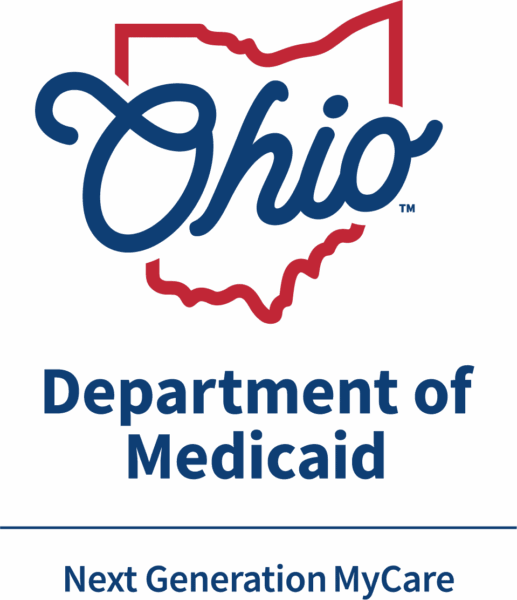Missouri CDS Caregivers
Consumer Directed Services or CDS is a program offered by Missouri Medicaid, also known as MO HealthNet, and authorized through the Department of Health and Senior Services (DHSS). The program was enacted by the federal Social Security Act in 1965.
The CDS program benefits low income individuals over the age of 60 and adults with physical and mental disabilities regardless of their age. It allows recipients to obtain care from family members or friends in the comfort of their homes instead of being institutionalized. This way, they can lead an independent life, keep meeting friends, and pursue their favorite hobbies and activities while being assisted by someone they know and trust.
What Are Some Tasks of a Caregiver?
The specific CDS caregiving tasks depend on the patient’s needs and type of disability, however, they typically include the following:
Light housekeeping
As a CDS caregiver, you should have at least some basic cleaning skills. You may need to help the patient with light housekeeping tasks such as washing dishes, doing laundry, ironing, and vacuuming.
Shopping and errands
If driving or taking public transportation are not safe options for your loved one, you might need to drive them to medical appointments or do grocery shopping and other errands.
Assistance with personal hygiene
Depending on the level of their disability, some people may need assistance with personal hygiene, including bathing, grooming, and using the toilet. As an elderly caregiver, you should find the right balance between providing assistance and allowing your loved one to keep their independence for as long as possible.
Medication reminders
One of the common CDS caregiving tasks is administering medications, but also reminding the patient to take them, overseeing prescriptions, and picking up orders. In addition, you will need to check regularly on medication supply and take note of any side effects.
Meal preparation
As a CDS caregiver, you may be expected to prepare food, help with grocery shopping, and do meal planning. It is important that the meals are both tasty, nutritious, and easy to digest. You also have to take into consideration any dietary restrictions, preferences, and allergies.
Incontinence care
Providing incontinence care is one of the most challenging caregiving tasks that can provoke anger, resentment, and embarrassment. To minimize stress and anxiety, you should create a regular bathroom schedule for the patient and help them use incontinence products daily.
Monitor vital signs
If your loved one suffers from a chronic medical condition that needs monitoring, you will be required to regularly take and record their vital signs, including body temperature, heart rate (pulse), respiration rate, and blood pressure.
Why Would Someone Need a Caregiver?
Living alone is often not a safe alternative for the elderly and people with disabilities. Here are some of the reasons why someone may need a caregiver:
- They are not able to take care of themselves
- They need to stay in bed and therefore have limited mobility
- They are at risk of falling and hurting themselves
- They need a little encouragement to get up and move around
- They are recovering from an illness or surgery
- They need incontinence care
- You want to give their spouse or another caregiver a break
- They need an escort to doctor’s appointments.
Studies have shown that older adults who have a caregiver recover more quickly and live longer than those in an assisted living facility due to personalized care, as well as the physical, medical, and emotional support they receive.
Several federal benefits programs provide financial assistance to seniors and people with disabilities. Read on to find out whether social security programs will also pay for caregiving.
SSI and SSID
Supplemental Security Income (SSI) and Social Security Disability Insurance (SSDI) are two of the programs administered by the Social Security Administration. These programs provide monthly payments to help beneficiaries pay for their daily living needs and medical care.
Social Security Disability Insurance (SSDI)
SSDI is intended for disabled people who have a qualifying work history either through their own employment or through a family member. The more you earn, the higher the disability benefit. To qualify, you must have worked a specified number of years in jobs approved by the Social Security Administration and paid social security taxes.
In addition, you must have a medical disability that meets the Social Security Administration’s definition and criteria. The disability must be so severe that it prevents you from working and it must be expected to last for more than a year. Accepted conditions include ALS, cancer, heart disease, cerebral palsy, multiple sclerosis, certain mental health issues, and many others.
Eligible family members like a spouse or a child can receive up to fifty percent of your monthly benefits based on your work record. What’s more, anyone who receives SSDI benefits for two years becomes automatically eligible for Medicare.
Does SSDI pay for caregivers?
SSDI doesn’t pay for caregiving, except in the case where the recipient uses the monthly benefit to pay a family member privately. At the same time, the person caring for someone who is disabled may qualify for SSDI.
Supplemental Security Income (SSI)
SSI provides minimum basic financial assistance to older adults and individuals with disabilities who have very limited income and few resources. Federal SSI benefits from the Social Security Administration are often supplemented by state programs.
Unlike SSDI, Supplemental Security Income is need-based. This means that no work credits are necessary to qualify for this benefit. You are eligible if you have the minimum required amount of yearly income. It is possible to qualify for both SSDI and SSI at the same time.
Does SSI pay for caregivers?
Supplemental Security Income doesn’t pay a caregiver directly but again, you can use your benefits to pay for the services of a family member.
Social Security Won’t Pay a Caregiver
Traditional social security that you become eligible for when you reach the age of 62 if you have worked long enough, also known as retirement benefit, doesn’t pay for family caregivers. However, depending on your earnings and when you decide to take your social security income, you may have enough funds to pay for a caregiver.
Medicaid programs
Receiving financial compensation for the time and effort you dedicate to taking care of a family member can make a huge difference in your life and the life of your loved one. Even though Social Security benefits don’t pay caregivers, there are some government programs that do. In Missouri, you can get paid through MO HealthNet to provide in-home care for an elderly or disabled family member, provided that they qualify for Medicaid. Note that all state Medicaid plans, including the CDS, are entitlement programs and anyone who meets the eligibility requirements can benefit from their services.






